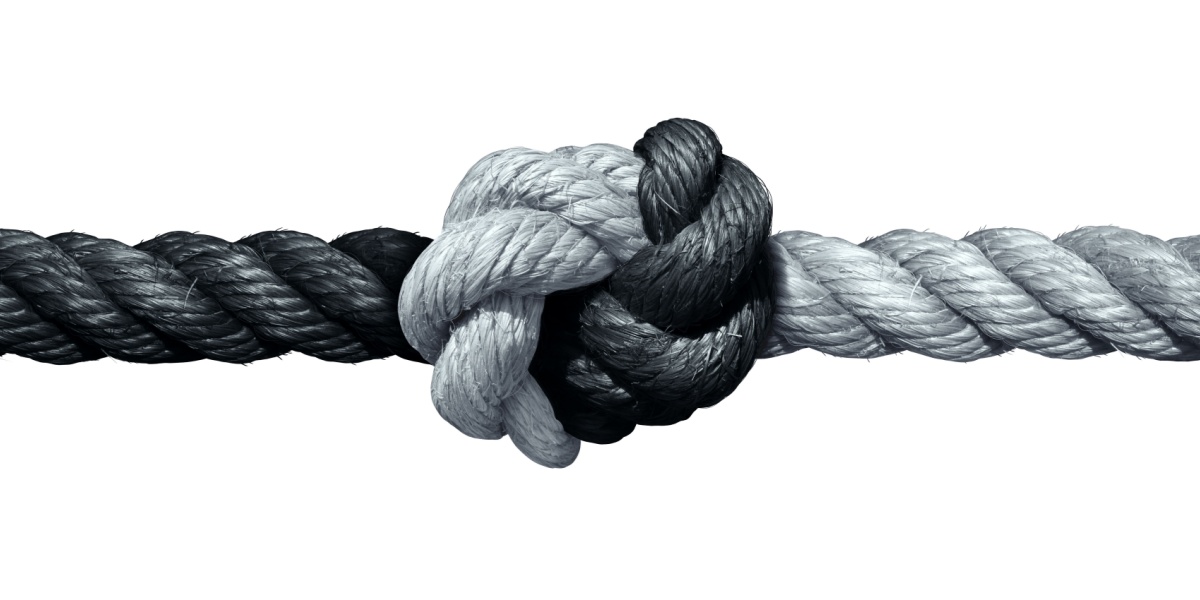Addiction and dependence are words both used to describe an unhealthy and problematic pattern of drug or alcohol use. In the past, drug or alcohol dependence was diagnosed as the most severe form of addiction, but this classification was done away with in 2013. Today, addiction and dependence are used interchangeably, and both refer to an unhealthy and problematic pattern of substance use.
- A person can be physically dependent (or physically addicted) to a drug, or they can be psychologically dependent.
- Once dependent on a substance, a person will often develop a tolerance to the drug, meaning they need to increase their dose to get the desired effects.
- It is possible to have a physical dependence on a substance without being addicted, though one is rarely present without the other.

Understanding dependence & addiction
People who struggle with an unhealthy and problematic dependence on drugs, alcohol, or other illicit substances are struggling with an addiction. In the past, the APA’s DSM 4 classified addictive disorders as either substance use, abuse, or dependence, depending on how severe the addiction was. People with dependence were classified as having the most serious form of addiction. In 2013, the APA did away with these terms and now classify all substance use disorders as either mild, moderate, or severe.[2]
A person can be physically dependent (or physically addicted) to a drug, or they can be psychologically dependent. A person with a physical dependence on a substance will experience withdrawal symptoms when they cut back or stop using a drug. A person with a psychological dependence may only experience mood swings, psychological or cognitive problems, or no withdrawals at all when cutting back or stopping.[3]
Dependence
Dependence is usually a word used to describe a physical addiction to a drug, but can also describe an emotional or psychological addiction. Once dependent on a substance, a person will often develop a tolerance to the drug, meaning they need to increase their dose to get the desired effects. Also, once dependence has formed, many people will experience urges or cravings to use, and symptoms of withdrawal when they cut back or stop using. Withdrawal symptoms are the adverse side effects felt when use of the substance stops suddenly (flu-like symptoms and muscle pain in opioid users, for instance).[1][3]
Addiction
It is possible to have a physical dependence on a substance without being addicted, though one is rarely present without the other. Addiction describes a problematic pattern of substance use that causes problems, consequences, distress, or impairment for a person. Addictive disorders are diagnosed as either mild, moderate, or severe depending on how many of the 11 symptoms of substance use disorder a person has. [1][2]
Substance use disorder
As the medical and scientific discussion on these terms has progressed in recent years, both are now considered as part of a larger grouping; that of substance use disorder. A substance use disorder is the clinical diagnosis used to describe substance misuse, dependence, and addiction, with all aspects having a clearer definition and path as part of the larger term.[1][2] The reason for this new definition is partly to add clarity but also to remove social stigma that exists around the preexisting terms.
Substance dependence and abuse
In the previous version of the DSM, a substance use disorder was classified as a mild form of addiction, substance abuse disorder was used to describe moderate addiction, and substance dependence was used to describe severe addictions. These classifications changed in 2013 and the terms are no longer used to differentiate mild, moderate, or severe forms of addiction.[2] A person with 2-3 (out of 11) symptoms would be classified as mild, 4-5 as moderate, and 6 or more as severe.[1]
Physical vs psychological dependence
Physical and psychological dependence on a drug is different, although many with addictions to drugs or alcohol have both. Being physically dependent on a substance means a person’s brain and body have come to rely on the drug, and that a person will experience physical withdrawals when cutting back or stopping. Certain drugs are known to be more physically addictive than others, making it more likely that a person will develop a physical dependence (i.e. heroin, cocaine, or meth vs marijuana or alcohol).
Psychological dependence, on the other hand, is a mental or emotional dependence on a substance. People who are psychologically dependent may not experience physical withdrawals but can still have a hard time cutting back or stopping substance use While commonly associated with substance abuse, psychological dependence is also common in behavioral addictions like pornography or gambling.[3]
The triggers for mental dependence are extremely varied and are different for everyone. Some individuals will have triggers around other people, an ex-partner or parent for example, while others may find triggers associated with certain locations. Experiencing cravings or urges, mood swings, trouble focusing, or other psychological effects is common in those with a psychological dependence and may be caused by drug “triggers”.
Risk factors for addiction and dependence
While it isn’t possible to develop an addiction to a substance without repeated use, addictions can form more quickly and easily in certain people. Genetic, neurological, or psychological factors can all increase a person’s likelihood of developing a drug or alcohol dependence. In addition, stress, trauma, and hardship are also known ‘risk factors’ that make addiction more likely. Even certain personality traits like being naturally more impulsive or neurotic can increase the chances of developing a dependence on drugs or alcohol.
Final thoughts on addiction vs dependence
Addiction and dependence are terms that are used interchangeably to describe an unhealthy, problematic reliance on drugs, alcohol, or other compulsive behaviors. Some people develop physical dependencies on a drug while others only develop a psychological (aka mental or emotional) dependence.
Addictive disorders are highly treatable, and treatment at an inpatient or outpatient rehab can greatly increase the likelihood of long-term sobriety. People with physical dependence may benefit from inpatient detox or rehab to ensure a safe and successful withdrawal, and anyone with an addiction should seek out addiction treatment. If you or a loved one is struggling with drug or alcohol dependence, reach out today to a treatment specialist to explore what treatment options are available.


-guide-detail.jpg?v=1756808991)
